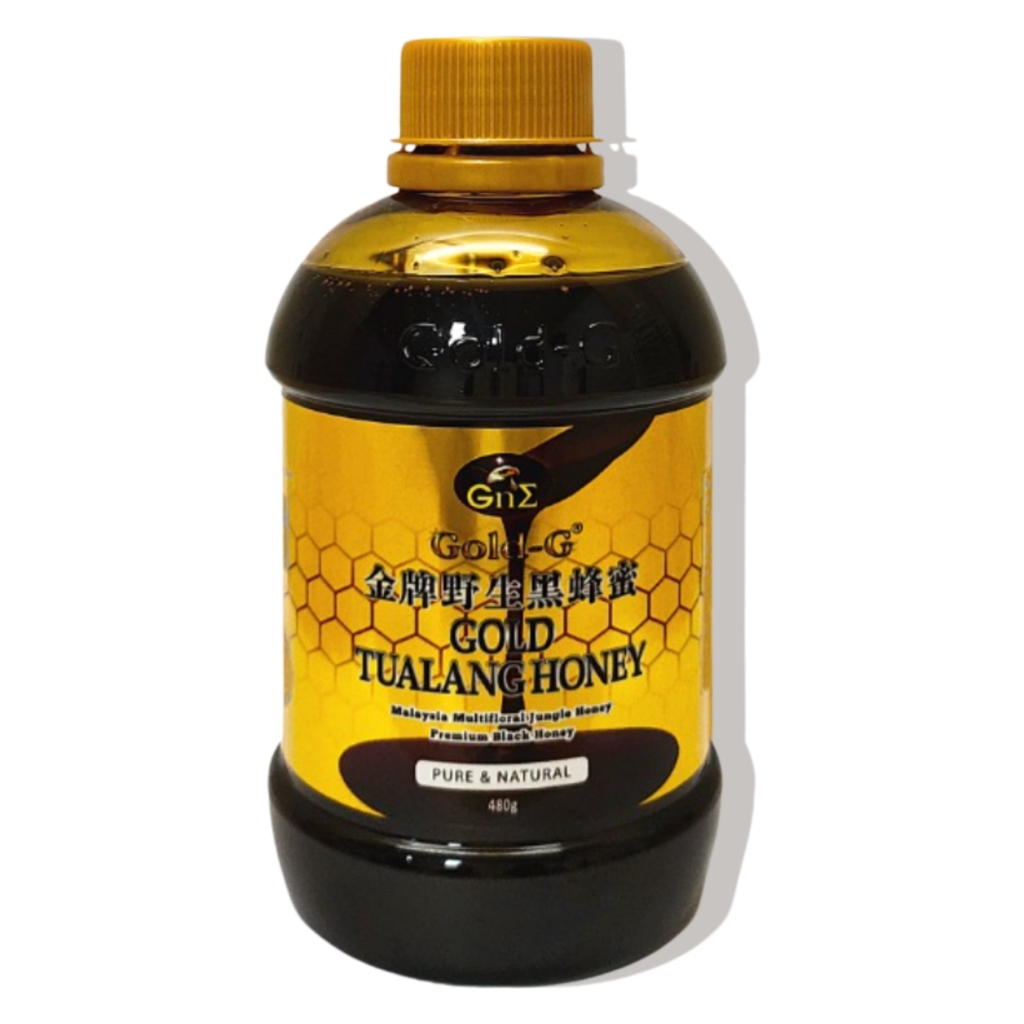Honey is a well-known remedy for cough and respiratory ailments, and the World Health Organization (WHO) also endorsed the use of honey as a demulcent in the symptomatic relief of a cough and sore throat.
In a preliminary study conducted in 2018, the efficacy of Tualang honey in alleviating acute respiratory symptoms among Malaysian Hajj pilgrims was evaluated. The study involved 400 pilgrims who were randomly assigned to either a Tualang honey group or a control group. The Tualang honey group consumed 10 grams of Tualang honey three times daily for a duration of seven days, while the control group received a placebo.
The results of this study revealed that the Tualang honey group experienced a significant reduction in the severity and duration of acute respiratory symptoms, including cough, sore throat, and nasal congestion, when compared to the control group. Furthermore, the Tualang honey group exhibited a lower incidence of respiratory complications, such as pneumonia and bronchitis. These findings strongly suggest that Tualang honey may serve as a valuable natural remedy for reducing acute respiratory symptoms not only among Hajj pilgrims but also potentially among other populations.
How to Use Honey for Cough and Sore Throat
- Take 1 tablespoon (10-15g) of Tualang honey directly. Tualang honey is a thick liquid with antimicrobial properties, it can coat the throat, relieve cough and soothe the sore throat.
- Mix 10g of Tualang honey into warm water or lemon juice. Drinking warm honey water could provide immediate and sustained relief from symptoms of runny nose, cough, sneezing, sore throat, chilliness and tiredness; while a warm honey lemon provided a boost of vitamin C and antioxidants to strengthen immunity and soothe the symptoms of cold/flu, including cough and sore throat.
- Mix 10g of Tualang honey into a glass of milk. Drinking this remedy before bedtime would be beneficial to reduce nighttime cough and promote better sleep.
Warm water is better than cold water. Avoid cold water or cold beverages during a cough or sore throat as it could cause bronchospasm, a brief tightening of the airways that can cause you to cough more often.
How does it work?
Tualang honey is rich in flavonoids and phenolic acids, where they are full with antioxidation effects, and might protect the lung cells from the damaging effects of free radicals (smoking or environmental irritants) . Furthermore, Tualang honey has a strong antimicrobial effect, it may stimulate the immune system and reduce the symptoms of respiratory infections, which also lessens the incidence of cough, runny nose, fever and sore throat. Besides, Tualang honey is also a thick liquid that could coat the inner lining of the throat while simultaneously destroying the harmful microbes, hence it is helpful to relieve cough and soothe the sore throat.
Honey vs. Cough Medicine
According to a literature review by Toorani (2019), honey has been confirmed to have therapeutic properties in the treatment of cough through multiple randomized control studies. It can be reasonably stated that honey is at least as effective as over-the-counter (OTC) cough suppressants such as dextromethorphan and other OTCs, if not better. Another study demonstrated that honey is as effective as cough medicine (dextromethorphan) in reducing acute cough in children, and concluded that honey can be recommended as a single dose of 2.5 mL (about half a teaspoon) before bedtime for children older than 1 year of age with cough.
Reminder, honey still consists of sugars, and excessive intake of sugars may harm the body health, therefore, it is suggested to consume honey in moderation, not more than 2 tablespoons per day.
Gold-G® Health Food Series

Gold-G® Gold Tualang Honey
Gold-G® Gold Tualang Honey is a raw and natural honey produced by the Asian Rock Bee, Apis dorsata. It is 100% pure and undergoes minimal processing, with only straining to remove larger particles such as bees, leaves, and honeycomb flakes. It is then directly bottled in a GMP certified factory, allowing it to retain its natural friendly bacteria, propolis, pollen grains, phytonutrients, phenolic acids, and flavonoids. In addition to its natural taste and aroma, it offers higher nutritional value and stronger therapeutic effects compared to processed honey!
Click the link below for direct purchase.
References:
- WHO. (2001). Cough and cold remedies for the treatment of acute respiratory infections in young children. Geneva: World Health Organization; Available from: https://www.who.int/maternal_child_adolescent/documents/fch_cah_01_02/en/
- Toorani, Mohamed. (2019). The therapeutic role of honey for treating acute cough in the pediatric population. A systematic review.. 8. 80205. 10.7363/080205.
- Muhamad R, Draman N, Aziz AA, Abdullah S, Jaeb MZM. (2017). The effect of Tualang honey on the quality of life of patients with chronic obstructive pulmonary disease: A randomized controlled trial. J Taibah Univ Med Sci. ;13(1):42-50. Published 2017 Jul 5. doi:10.1016/j.jtumed.2017.05.014
- Sulaiman, Siti Amrah & Hasan, Habsah & Deris, Zakuan & Wahad, Mohd & Che Yusof, Ruhana & Naing, Nyi Nyi & Othman, Nor. (2011). The Benefit of Tualang Honey in Reducing Acute Respiratory Symptoms Among Malaysian Hajj Pilgrims: A Preliminary Study. Journal of ApiProduct and ApiMedical Science. 3. 38-44. 10.3896/IBRA.4.03.1.07.
- Pasupuleti VR, Sammugam L, Ramesh N, Gan SH. Honey, Propolis, and Royal Jelly: A Comprehensive Review of Their Biological Actions and Health Benefits. (2017) Oxid Med Cell Longev. 2017:1259510. doi:10.1155/2017/1259510
- Sanu, A., & Eccles, R. (2008). The effects of a hot drink on nasal airflow and symptoms of common cold and flu. Rhinology, 46(4), 271–275.
- https://www.healthline.com/health/asthma/do-cold-drinks-affect-asthma
This website does not provide medical advice. The content of this website, such as graphics, images, text and all other materials, is provided for reference and educational purposes only. The content is not meant to be complete or exhaustive or to apply to any specific individual’s medical condition. Always seek the advice of your doctor or other qualified health provider regarding a medical condition.




